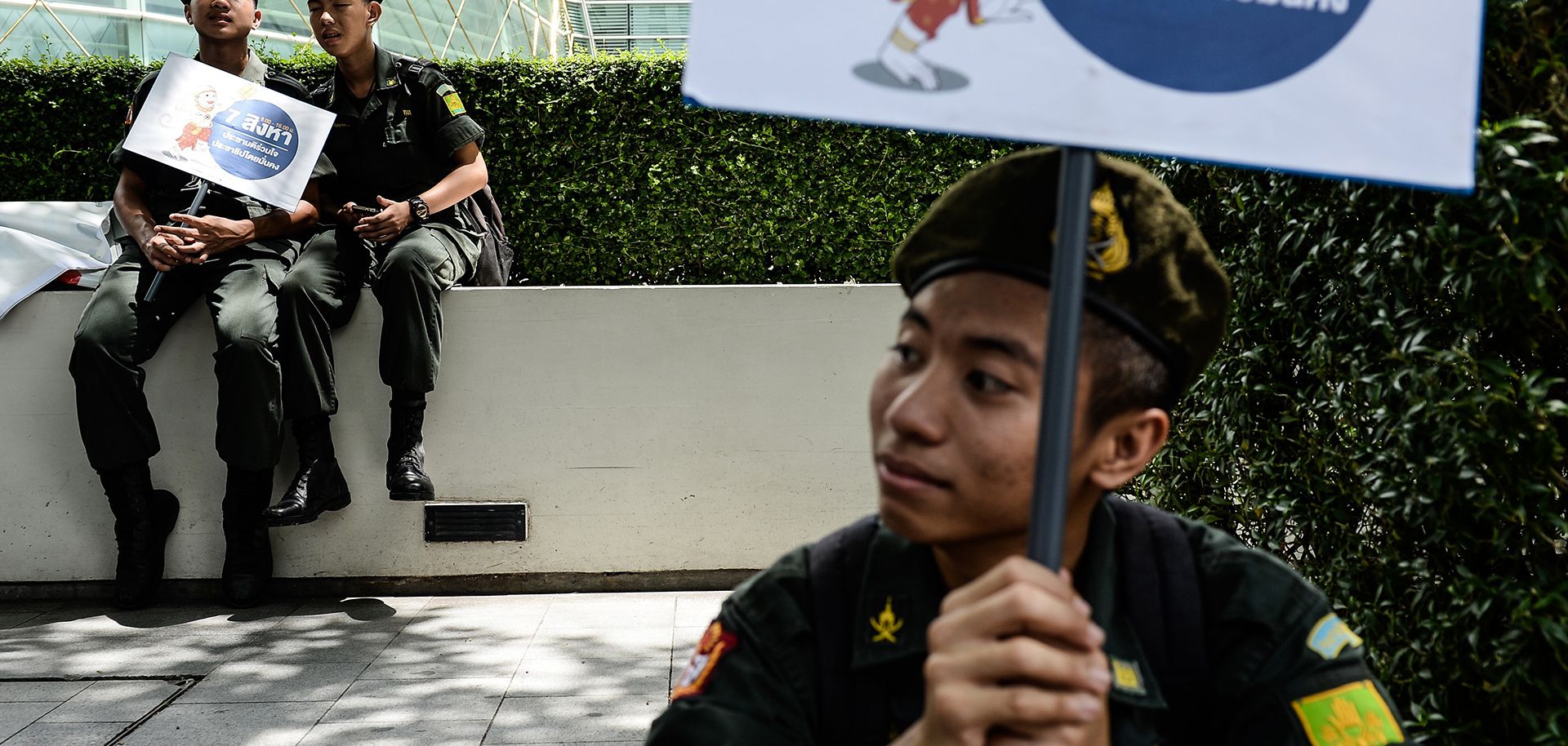ASSESSMENTS
Disciplining Democracy in Thailand
Aug 6, 2016 | 15:26 GMT

(LILLIAN SUWANRUMPHA/AFP/Getty Images)
Summary
The Thai military has staged 12 successful coups since the end of absolute monarchy in 1932. On Aug. 7, the current military junta, which took power in 2014, will ask Thai voters to approve a contentious new constitution. The government says the new charter will eliminate the need for military coups in the future. The draft charter includes a host of sweeping economic, judicial and political reforms. But its success in the referendum will hinge on the public's acceptance of its core aim: entrenching the military as Thailand's ultimate arbiter of power and the solution to the cyclical, often violent political unrest that has crippled the country for the past decade.
If the referendum passes, Thailand will move forward peacefully to elections, currently scheduled for mid-2017, and an era of weak, unstable civilian governments will follow. If the charter is rejected — a probable outcome, since Thailand's two strongest political parties oppose the draft — the junta will have laid the groundwork for a return of political unrest, presaging the end of more than two years of superficial, military-enforced calm.
Subscribe Now
SubscribeAlready have an account?
